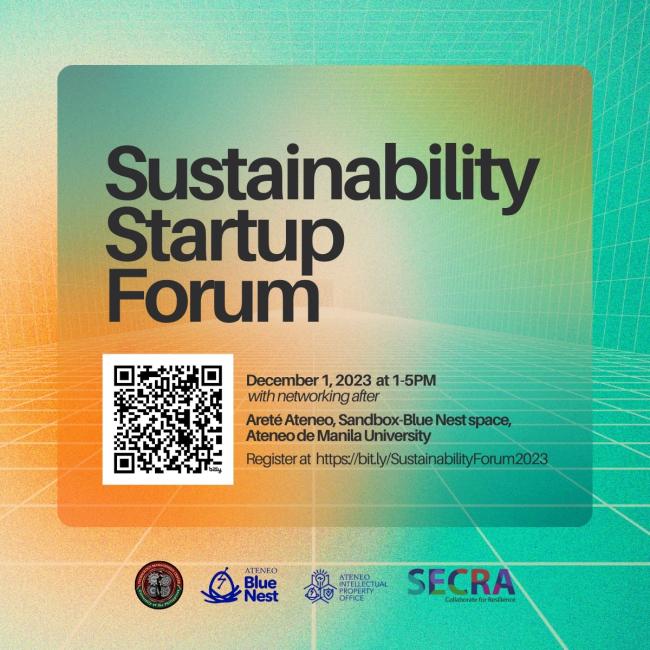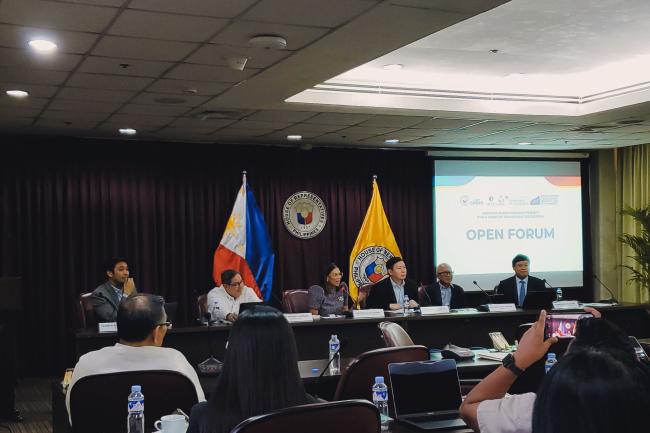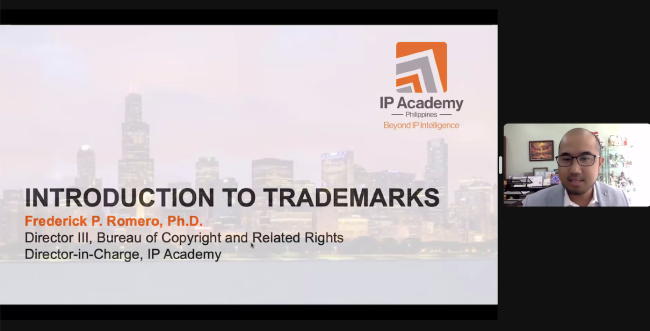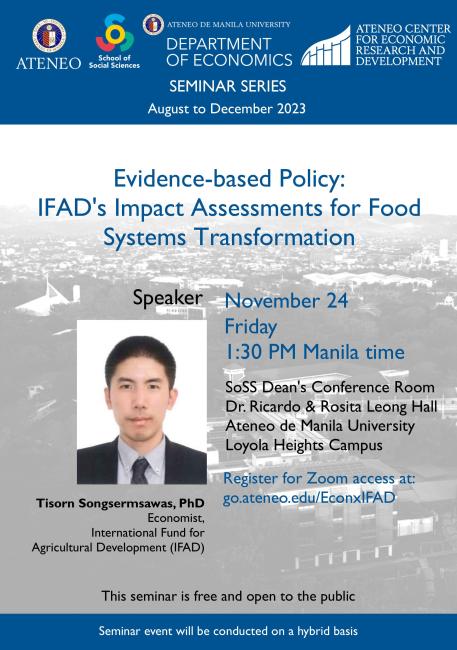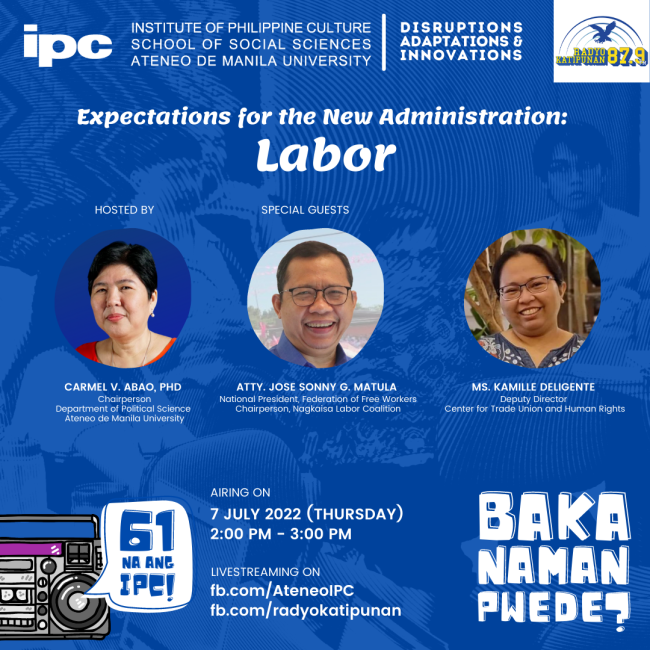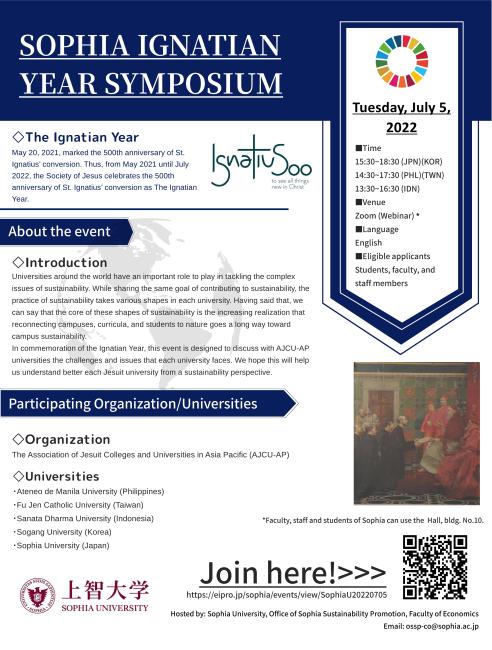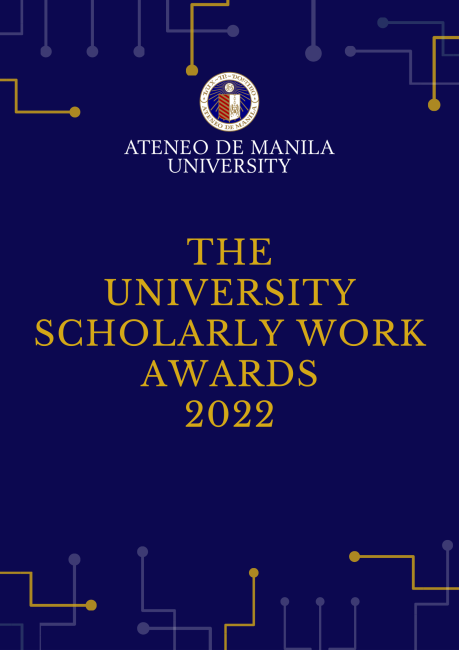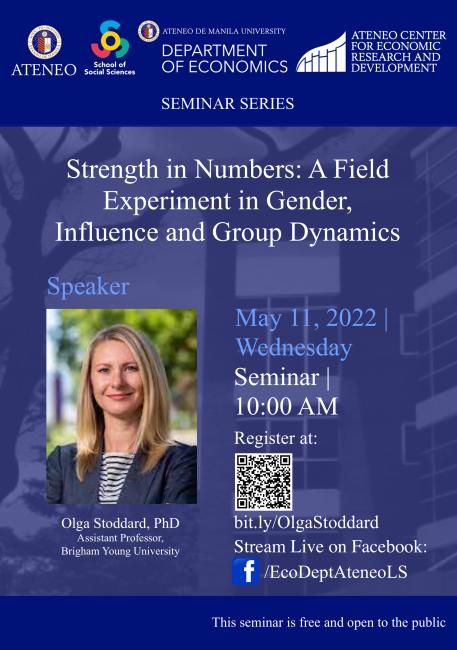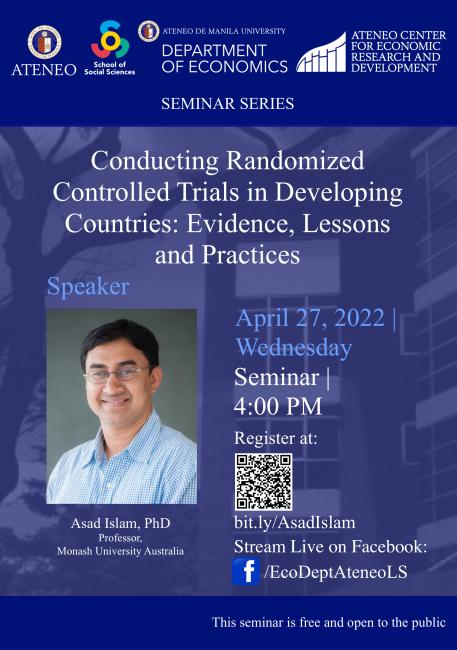Ateneo and the UN Sustainable Development Goals
Sustainable Development Goal 8
Decent Work and Economic Growth
Promote sustained, inclusive and sustainable economic growth, full and productive employment and decent work for all
The University strives toward a decent employment environment for all its employees. The University strictly adheres to Minimum Wage Order set by the Philippine government. Key anti-discrimination policies in the University are enforced to ensure a safe and inclusive working environment.
The University also offers various academic programs that focus on sustainability, such as the Master in Development Management, Master of Science in Sustainability Management, and the Bachelor of Science in Environmental Science. These programs equip students with the knowledge and skills needed to address social and economic challenges related to sustainability
News and Features
Sustainability Startup Forum
Are you part of a startup that aims to tackle issues in sustainability? Do you have a solution that addresses at least one of the...
HRep-Ateneo Project 3rd Roundtable Discussion: Primary Health Care and Financial Inclusion
The third roundtable discussion of the HRep-Ateneo Evidence-Based Research Project addressed challenges in primary health care (PHC) in the Philippines, emphasizing the need for a high-performing PHC system to achieve universal health coverage and improve population health. The afternoon session focused on monetary and financial stability, discussing recommendations for transparency and empowerment of consumers, with experts from institutions like the Bangko Sentral ng Pilipinas providing insights.
AIPO hosted an IP awareness session on Trademarks for Students and Entrepreneurs
On 16 November 2023, the Protection and Education Group of the Ateneo Intellectual Property Office (AIPO) hosted an informative IP awareness session focused on Trademarks...
Evidence-based Policy: IFAD’s Impact Assessments for Food Systems Transformation
Tisorn Songsermsawas, an Economist at the International Fund for Agricultural Development (IFAD), presents IFAD's unique commitment to systematic impact assessments, crucial for measuring development progress and informing future targets. IFAD conducts impact assessments on 15% of its project portfolio every three years, using the findings to guide decision-making, project design, and target setting. Songsermsawas outlines IFAD's methodology and shares the results of IFAD11 impact assessments, summarizing the corporate-level impacts of projects concluded between 2019 and 2021.
Pagination
Events
Lecture
Baka Naman Pwede? - Expectations on the New Administration: Labor
Thu, 07 Jul 2022
Radyo Katipunan 87.9FM / Online
Academic Conference
Sophia Ignatian Year Symposium: Jesuit Education and SDGs
Tue, 05 Jul 2022
Online
Ceremony
University Scholarly Work Awards 2022
Mon, 06 Jun 2022
Auditorium, Leong Hall, Ateneo de Manila University Loyola Heights campus
Workshop / Seminar / Short Course
Strength in Numbers: A Field Experiment in Gender, Influence, and Group Dynamics
Wed, 11 May 2022
Online
Other Event
The Ateneo de Manila University Journals National Elections Booksale
Thu, 05 May 2022
Ateneo de Manila University
Workshop / Seminar / Short Course
Conducting Randomized Controlled Trials in Developing Countries: Evidence, Lessons, and Practices
Wed, 27 Apr 2022
Online
